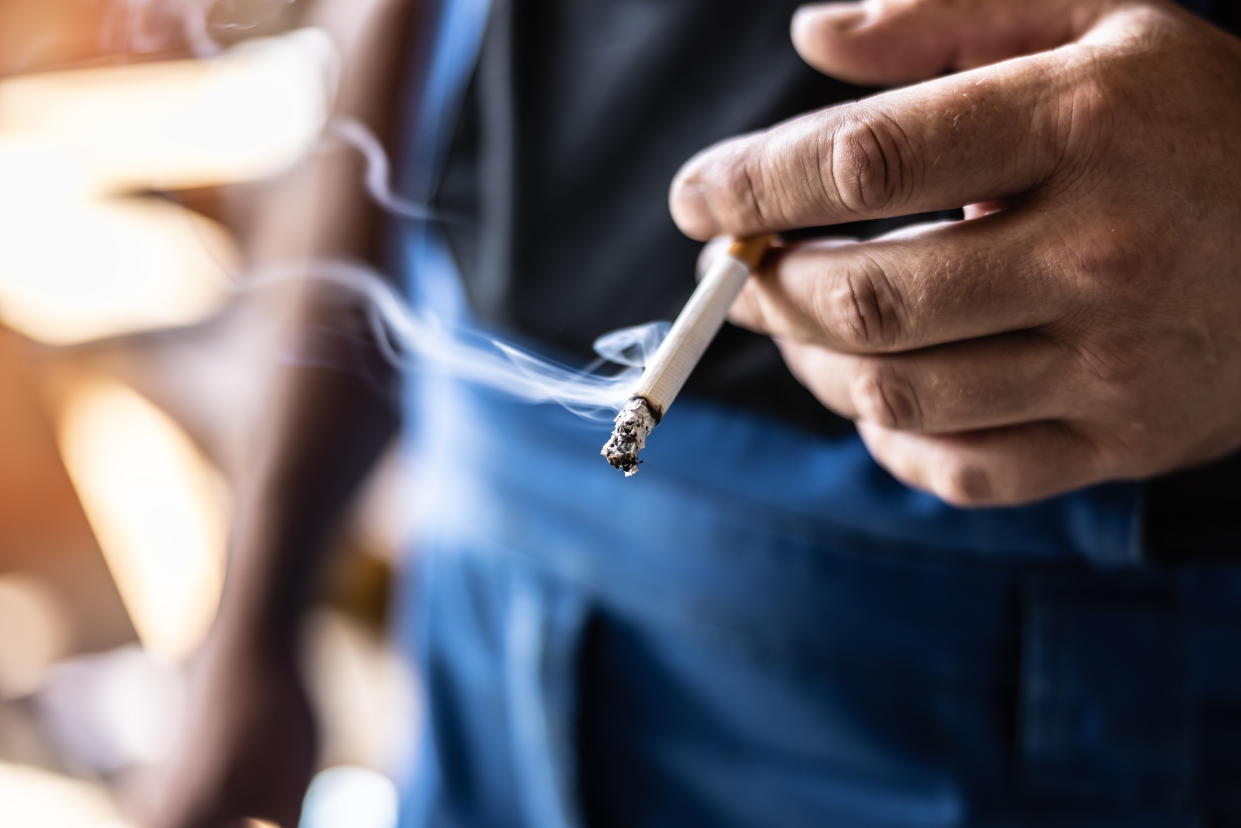What is emphysema? David Lynch reveals impact of 'many years of smoking'

The long-term effects of smoking can be devastating for our health, leading to potentially fatal conditions such as various cancers, heart and lung disease, and stroke.
US filmmaker David Lynch recently revealed how "many years of smoking" have impacted his health. The Twin Peaks director, 78, said he has been diagnosed with emphysema and quit smoking two years ago.
He told film magazine Sight and Sound that he is now "homebound" because the condition makes him vulnerable to catching other diseases like Covid. “It would be very bad for me to get sick, even with a cold,” he told the publication (via The Independent).
In a post on X, formerly Twitter, Lynch confirmed to fans that he has emphysema from "my many years of smoking". He added: "I have to say that I enjoyed smoking very much, and I do love tobacco - the smell of it, lighting cigarettes on fire, smoking them - but there is a price to pay for this enjoyment, and the price for me is emphysema.
"I have now quit smoking for over two years. Recently I had many tests and the good news is that I am in excellent shape except for emphysema. I am filled with happiness, and I will never retire."

What is emphysema?
Emphysema is a type of lung damage and one of the main conditions of chronic obstructive pulmonary disease (COPD). The other main condition is chronic bronchitis.
People with emphysema experience breathing difficulties as it means the walls of the air sacs in the lungs are damaged. Our lungs consist of millions of tiny air sacs known as alveoli that take in oxygen and expel carbon dioxide.
When these air sacs become damaged, they can break apart and merge into each other, creating holes in the lung. According to Asthma and Lung UK, this can cause breathing difficulties as the damaged part of the lung inflates more and can get in the way of the healthier parts of the lung.
How does smoking lead to emphysema?
Tobacco smoke contains toxins and can cause physical damage to the lungs when they are exposed to it through smoking.
The chemicals and particles released into the lungs can cause irritation, which develop into inflammation and eventually, damage to the alveoli. Long-term exposure to these harmful substances can increase a person’s risk of developing COPD.
According to the NHS, smoking is the main cause of COPD and is believed to be responsible for around nine in every 10 cases. However, COPD has also been linked to long-term exposure to harmful fumes or dust, and people who work in dangerous settings may be at higher risk of developing it due to constant exposure to polluted air.
The main symptoms of COPD, including for emphysema, are:
Shortness of breath, particularly when you’re active
A persistent chesty cough with phlegm
Frequent chest infections
Persistent wheezing
Symptoms will get progressively worse if not treated. You should see your GP if you experience persistent symptoms of COPD and start treatment as soon as possible, to stop your lungs from becoming even more damaged.

Treatment for emphysema
The damage caused by COPD to the lungs is permanent. However, starting treatment as soon as possible can help slow down the progression of the condition.
Treatments include:
Stopping smoking to prevent further damage to the lungs
Inhalers and medicines to help make breathing easier
Pulmonary rehabilitation, which involves a specialised programme of exercise and education
Surgery or lung transplant, but this is only an option for a very small number of people
Asthma and Lung UK adds that people with COPD usually have one or more other long-term health conditions, such as heart disease, diabetes, osteoporosis, muscle and joint problems, anxiety, and depression.
Therefore, it is important to look after other medical conditions to manage COPD and to get all symptoms properly treated.
Read more about health and wellness:
Where to find free help to quit smoking as Coleen Nolan kicks habit (Yahoo Life UK, 4-min read)
The mental health benefits of quitting smoking: Experts urge parents to stop cigarettes (Yahoo Life UK, 4-min read)
'Nobody deserves cancer': There's a lung cancer stigma, and it's making people sick (Yahoo Life UK, 5-min read)


